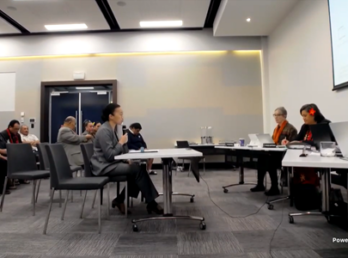Buying A Property With Friends Or Family articles
Date
20 Apr 2020
Related Expertise
Pitching in – Buying a Property with Friends or Family
There has been a lot of talk in the media lately about people buying their first house with friends or borrowing deposits from family. One of the biggest challenges facing first-time buyers in particular is the need to save a deposit. With house prices increasing faster than many people are able to save for many it seems that the deposit required can never be achieved. While first home buyers have been able to access the funds in their Kiwi Saver account to contribute towards the deposit, the impacts of COVID-19 on the sharemarket mean that many first-time buyers will have seen a large portion of the potential deposit disappear for the foreseeable future. Now is the time to consider creative ways to pool resources with other people to get onto the property ladder or to start an investment portfolio.
One of our partners, Emma Falconer, has provided advice to numerous purchasers on ways to structure their property investments to suit their own individual requirements. She has also personally entered into several different co-investment arrangements, so brings a practical understanding of the pitfalls that may face co-investors and the legal arrangements that can be used to avoid these pitfalls.
Firstly, it is best to have an open and frank discussion with potential co-investors very early in the process. Typically, once you have identified the house you would like to purchase there are only a few weeks in which to satisfy all the conditions in your Sale and Purchase Agreement and then another 2-4 weeks to complete all the loan paperwork, as well as preparing to move house. During this time, you are unlikely to have the time or attention to focus on getting your co-ownership structure right. If you have had robust discussions with your co-investors in advance then you will already have the details that your real estate agent, bank manager or mortgage broker and lawyer will need in order to quickly and easily assist you to complete your purchase.
There are a number of common co-investment scenarios, which we will explore briefly here together with their pitfalls, as well as discussing some of the more creative ideas for co-investment for purchasers who have insufficient funds for a deposit (or who may wish to take advantage of the lower interest rates and fees which banks frequently offer to borrowers who have a better loan to value ratio) and/or have insufficient income to service the mortgage once a house is purchased.
Purchasing with your Partner
Many house buyers are in a relationship and it is common knowledge now that if a couple separate the home they live in will usually be shared 50/50 when the relationship property assets are divided. However, this does not apply for couples who separate in the first three years of their relationship so if anyone is looking to buy a property with their partner early on in their relationship, they should consider entering a Relationship Property Agreement. Similarly, if the relationship is a long-term relationship but the parties have agreed to contribute unequally to the property purchase and its ongoing holding costs, the parties should record this in a Relationship Property Agreement. Many couples will look at the different cash contributions they are making when they purchase and determine their respective ownership proportions based on this. However, over time the partners may contribute significantly different amounts towards the holding costs (such as mortgage payments, rates, insurance, property improvements), or one partner may contribute financially while another contributes non-financially. Over time the originally agreed proportions may cease to reflect what the partners consider to be fair. This should all be canvassed thoroughly when entering into a Relationship Property Agreement.
Funds from Parents or other Family Members
It is common for first-time buyers in particular, but also for those buying subsequent homes, to receive funds from family members. The often-used phrase is “bank of mum and dad” but how this works in specific situations can impact significantly both on the purchasers and the parents.
Gift
If the funds from the parents are deemed to be a gift this means that the parents have no expectation that the money will be repaid. Banks will frequently encourage the funds to be a gift because this increases the equity the purchasers have in the house, which reduces the banks risk on the loan. However, if the parents need these funds in the future, for example for their retirement savings, they will not have any right to require its repayment. Further, if the purchasers are a couple who later separate, the ex-son- in law or ex-daughter-in-law is unlikely to feel any moral obligation to assist the parents and so any repayment to the parents would come from their own child’s share of the equity, meaning that the parents have enriched the ex-son-in-law or ex-daughter-in-law inadvertently.
Loan
If the funds from the parent are recorded as a loan this gives the parents comfort and that it will be repaid in the future, and also avoids the potential of enriching the ex-son-in-law or ex-daughter-in-law that arises under a gift. However alone a loan is unlikely to satisfy the bank’s deposit requirements as this doesn’t get counted as part of the purchasers’ deposit. So, although a loan from the parents will mean mortgage repayments will be lower, the purchasers will still need to find enough funds themselves to meet the bank’s minimum deposit (without including the amount being lent by the parents). The banks will add their own loan together with the parents’ loan to determine how much debt the purchasers have, regardless of whether the purchasers will be making regular payments towards the parents’ loan or not. If the purchasers and the parents decided to go down this path then they should be discussing not only how much is being lent but also whether there will be interest paid and when and how the loan will be paid back.
Guarantee
Rather than parting with cash, the parents may be called on to guarantee the purchaser’s loans. This means that the parents’ equity in their own house is used to reduce the deposit the purchasers need to find. It has the advantage of leaving the parents’ cash in the bank but the parents are exposing themselves to risk and could potentially lose their own home if the purchasers are unable to pay their own mortgage payments. The parents should always take separate legal advice on the risks they are taking as there are several ways that this could be reduced, if the bank is willing to negotiate the terms. Parents should be very careful to ensure they understand what guarantee means and how it affects them before agreeing to this proposal. Another consideration is that the purchasers will have to use the same bank as their parents in order for this option to work. This reduces the purchaser’s ability to negotiate with a different bank offering the best deal.
Co-Ownership
The parents may choose to take an ownership interest in the property. This comes with the same options and pros and cons as discussed below when a group of friends invest in a property together.
Co-Ownership with Friends
There has been a lot of media buzz about people buying houses with friends and family members. This can take three separate forms.
(1) They may buy it as an investment property to rent to third parties;
(2) They may buy it with the intention of one party living in the property; or
(3) They may buy it with the intention that both parties live in the property at the same time.
Each of these scenarios comes with its own unique set of considerations.
Investment Property
This is usually the most straight forward co-ownership method. The two parties can agree whether to enter on a 50-50 basis or some other proportionate ownership. They should discuss whether the same proportions will apply to the contribution to the purchase price and also to outgoings (such as loan repayments, maintenance, insurance, rates).
One Party to live-in and one Party to Invest
This situation frequently arises where parents are assisting children into the home and as an alternative to the parents lending or gifting a share of the deposit. Under this scenario the parents would receive a share of the property value when it is sold, which means they may get back more or less than their original investment depending on what the property market has done in the interim. However, the party living in the house is receiving the benefit of accommodation, so the parties need to consider carefully whether the party living-in should be contributing rent, or taking a bigger share of the outgoings, maintenance and/or agreed improvements to the property. In addition, they should discuss their intentions to improve the property, including how they will decide what needs to be done, who will contribute financially and in terms of time to improvements and whether this influences their proportionate ownership in the property.
Both Parties to live-in
This situation most frequently arises where either a parent and child purchase a property together with the intention of living together, or friends agree to purchase and become flatmates. In this situation both parties have the benefit of accommodation so the question of rent should not have to arise, but the parties will need to redress what happens if one wishes to move out or one wants to move in a new partner. In addition, if one is contributing more financially to the purchase price than the other, does this equate to a larger share of the property ownership and in this situation where both are living in the house should the contributions to the outgoings remain 50-50 or match the proportionate ownership. Again, plans to improve the property, or at least a method to agree on any improvements, should be discussed and formalised in advance.
Common considerations for all options
All parties need to consider such things as how to sell the property and when and for how much, including if the parties are in dispute. Are they in this investment equally or is one party contributing more than the other to the initial purchase price, loan repayments and also to outgoings? They should discuss whether they should create a formal partnership, company or another entity to hold the co-investment (advice from your accountants would be useful at this time to make sure that the best possible legal and financial investment structure is formed). All parties should understand the risks associated with co-ownership and make sure that the structure they enter into is the one best suited to their personal circumstances. A robust dispute resolution process needs to be agreed in advance, as co-investment can lead to a breakdown in a relationship. The most common dispute resolution process would set out a way to quickly sell the property (either by one buying out the other or by putting it onto the open market) so that, especially in situations where both parties are living in the property, a strained co-investment relationship can be brought to an end and parties can move on.
If you are considering purchasing a property with assistance from any other party, these investments can be successful but the greatest success will be achieved when both parties have had a full and frank discussion prior to entering into the investment. The most common challenges we see are where parties have agreed to an undefined plan to help each other out, transfer money between themselves and fail to document what they are setting out to achieve. Your greatest chance of a successful co-investment is where you agree to three key things:
(1) How you are both introducing money at the commencement;
(2) How you are going to both contribute to the costs of ownership throughout your co-investment
(3) How you are going to bring your co-investment to an end.
If you are keen to investigate whether co-investment is a right for you please contact us.
The above overview has been provided for general information purposes only. It is not, nor is it intended to be treated as, legal advice and is subject to change without notice.
Subscribe
Get insights sent direct to your email.





















